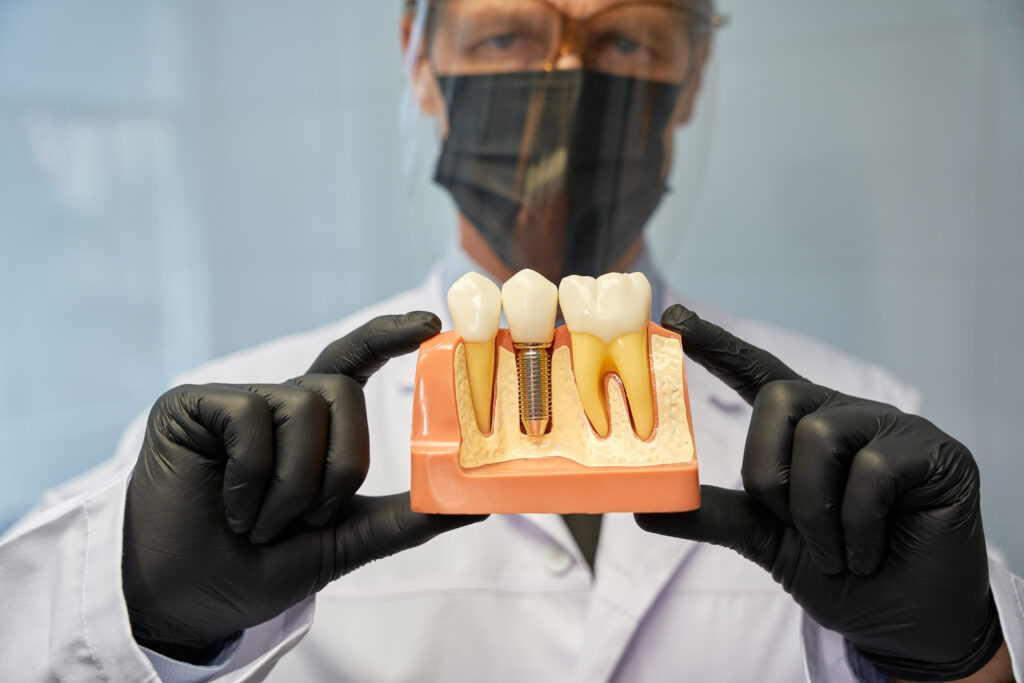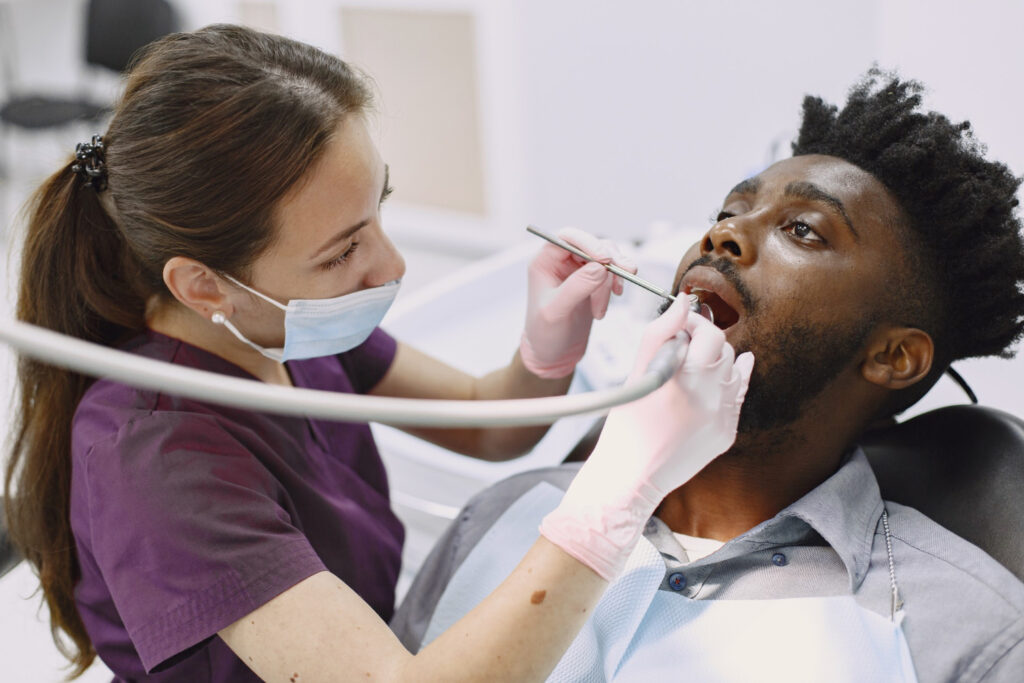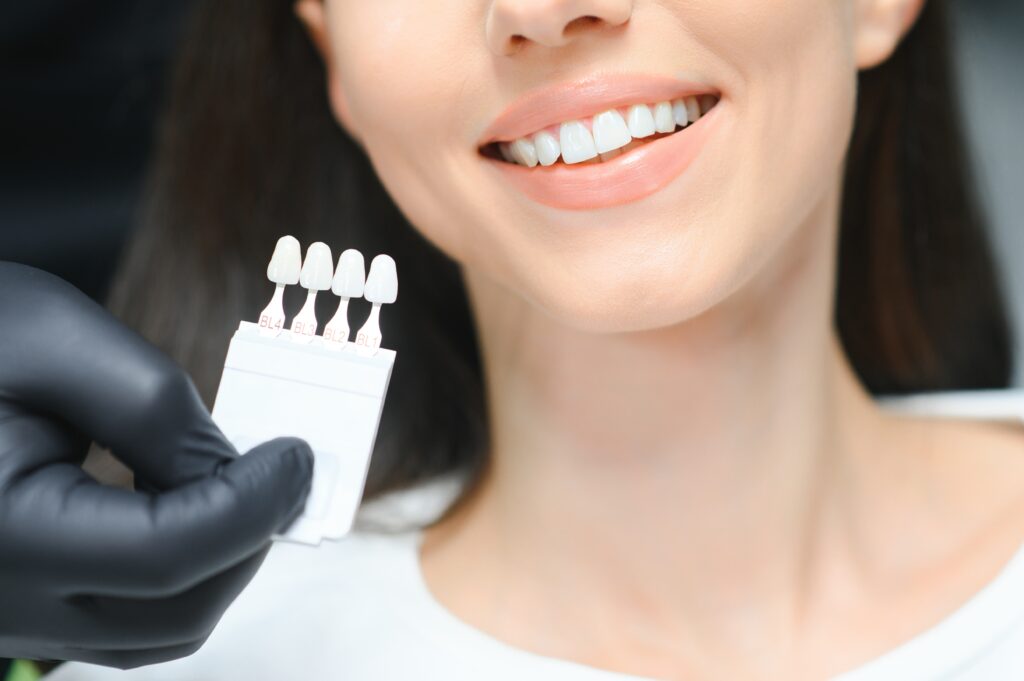
The crown of a tooth is the part that you can see — the part above the gumline. However, if you damage your tooth, you may undergo a dental crown procedure, where the dentist places an artificial crown on top of your tooth to restore its form and function.
There are several types of crowns used in these procedures, each with its benefits and drawbacks.
Ultimately, strength, durability, tooth location, and cost will be the deciding factors in which type of crown you get.
With that in mind, let’s look at the types of crowns below.
Crown Types:
Permanent Crown
This is the main kind of crown. These remain on your tooth forever should you need a crown. However, you may need to repair or replace them (depending on damage and wear) every 5-15 years.
Making these can take time, which is where the next type of crown comes in.
Temporary Crown
When you’re getting a crown procedure done, you may start out with a temporary crown. This is exactly what it sounds like — your dentist places it on your tooth for a short period of time with a weak adhesive for easy removal. You wear this crown while the permanent one is made.
Onlay or ¾ Crown
In some cases, your dentist may not think you need a full crown. In that case, you could receive an onlay or a ¾ crown. An onlay is a single piece of material used to cover a small cusp of the tooth. Similarly, ¾ crowns cover 75% of your tooth, as the name implies.
One-Day Crown
One-day crowns can be created in a single dentist appointment. They’re made from a block of ceramic right there in the office.
Ceramic tends to be less durable than other crown materials, but with proper care and good oral health habits, they can last just as long.
Crown Materials
Now, let’s explore the various materials crowns can be made of.
Gold
Gold crowns are generally reserved for back teeth, given their color difference. They can be made solely of gold, or of a gold alloy.
Gold crowns are known for strength and durability, and you don’t need to remove as much of your tooth structure.
In general, expect these to cost $600-$2500.
Porcelain
Porcelain is often used for front teeth since it matches the natural tooth color. However, they may require the dentist to grind away more of your tooth (leading to more discomfort during the procedure and increased hot/cold sensitivity), and they can be more fragile than metal crowns.
That said, the lack of metal content eliminates the risk of allergic reaction to metal. Thus, porcelain can be good for those with allergies to metals.
Porcelain crowns tend to fall in the $800-$3000 range.
Porcelain-Metal Fusion
You can also opt for a crown with porcelain fused to metal. This can offer additional durability without sacrificing aesthetics. These are also less expensive than pure porcelain crowns. The typical price range is $500-$1500.
Zirconia
Zirconia crowns used a relatively modern material — Zirconium — to blend the benefits of metal and porcelain crowns without using two separate materials. They are strong and durable. Cost is usually $800-$3000.
E-Max
E-Max crowns are the newest and most expensive kinds of crowns, and for good reason — they’re lightweight, yet highly durable. They are even less prone to chipping than Zirconia crowns. Price ranges from $800-$3000, but you can expect to see the higher end of that range more often.
Looking for a dentist in Philadelphia to restore your glimmering smile by crowning any broken, damaged, or worn teeth? Absolute Smile would love to help. Contact us today to learn more — all new patients get a free consultation!







